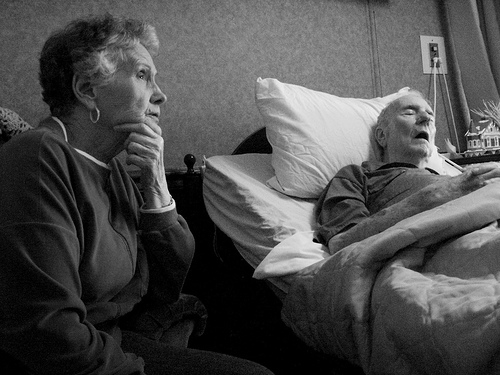We run our website the way we wished the whole internet worked: we provide high quality original content with no ads. We are funded solely by your direct support. Please consider supporting this project.

Prayer and the Open Future
Kurt Willems posted a blog today written by Derek Ouellette regarding why understanding that the future is partially open is the only thing that really makes sense of prayer. Derek addresses his thoughts to your younger self, the self that was more “Open. Teachable. Curious. Adventurous.” Let’s all be willing to respect and freely interact with the part of ourselves that is hungry for truly satisfying answers.
From the blog post:
Let’s assume that God is all-competent and all-wise. He’s not a buffoon or an imbecile. He’s able – not just by sheer strength, but by wisdom and competence. We always talk about how God is all-power and all-knowing. We never talk about how God is all-competent. God is able to work through the most complex situation without having to flex his bulging omnipotent bicep. He’s able to work through it by his know-how. He is, after all, omnicompetent.
Image by Derrick Tyson. Used in accordance with Creative Commons. Sourced via Flickr.
Category: General
Tags: Open Theism, Prayer, Warfare Worldview
Related Reading

Let Us Pray
Per Ola Wiberg via Compfight It’s appropriate to pray and reflect and run to God when tragedies like the one in Newtown, CT take place. We wanted to share a couple of things we found helpful around the blogosphere as we struggle through our sadness. T.C. Moore shared some thoughts on Darkness, Advent, and Newtown CT on…

What is your perspective on the classical view that God is above time?
In a major strand of hellenistic (Greek) philosophy, change was seen as being an imperfection. This idea was adopted by many early Church fathers and eventually became almost an assumed dogma of the Church. It was thus assumed that, since God is perfect, he must be above all change. Not only does his character and…

What is the significance of Exodus 13:17?
The Lord didn’t lead Israel along the shortest route to Canaan because Israel would have had to fight the Philistines. The Lord wanted to avoid this, “Lest the people change their minds when they see war, and they return to Egypt.” [NIV: “If they face war they might change their minds and return to Egypt”].…

Paradigm Shift Questions
A couple that was recently introduced to ReKnew and several of my books recently wrote to tell me that they are in the process of embracing the warfare worldview along with the open view of the future. They said that they “realize that these things aren’t minor adjustments but are rather all-encompassing paradigm shifts in…

The Case for Including Open Theism Within Arminianism
Here is an excellent post by my good friend Roger Olson in which he makes the case that Open Theism should be embraced by Arminians as an orthodox, if somewhat non-traditional, form of their faith. In fact, Roger argues (rightly in my opinion) that Open Theism is much closer to the “heart” of Arminianism than…

What is the significance of Exodus 33:1–3, 14?
“The Lord said to Moses, ‘Go, leave this place, you and the people whom you have brought up out of the land of Egypt, and go to the land of which I swore to Abraham, Isaac, and Jacob…I will send an angel before you, and I will drive out the Canaanites…Go up to the land…
